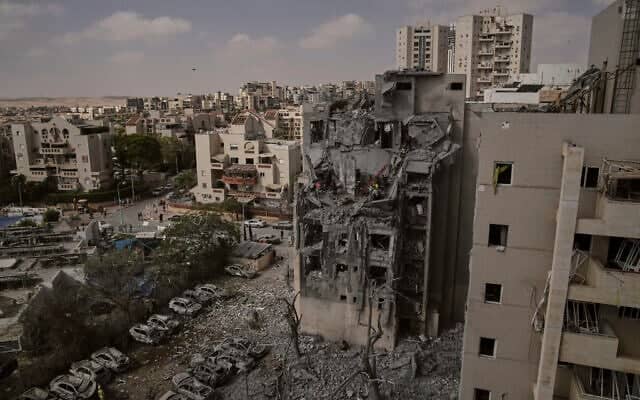
The long-standing rivalry between Iran and Israel has shaped the political and security landscape of the Middle East for decades. While the tension has escalated at times into open conflict, proxy battles, and covert operations, one question remains largely unanswered: Who truly benefits from this endless cycle of hostility?
Surprisingly, the answer may not be Iran, Israel, or even the United States. Instead, it could be some of the Gulf Arab states, quietly watching from the sidelines while their two main regional rivals weaken each other.
The Roots: From Revolution to Regional Realignment
The 1979 Islamic Revolution in Iran dramatically changed the balance of power in the Middle East. Iran shifted from a close Western ally to a revolutionary power bent on exporting its ideology and opposing Israel. In response, many Arab countries—particularly Saudi Arabia and the Gulf monarchies—grew increasingly wary of Iran’s ambitions.
In the 1980s, Iraq under Saddam Hussein, with financial and political support from Gulf states and the West, launched a devastating war against Iran. Later, in a surprise move during the 1991 Gulf War, Saddam fired missiles at Israel, hoping to divide the U.S.-led coalition.
But it was in 1981, when Israel destroyed Iraq’s Osirak nuclear reactor, that regional fears over nuclear proliferation became fully visible. With Saddam removed in 2003 by U.S. forces, a key barrier between Iran and Israel vanished, leaving both with more room—and more reason—to confront one another directly.
Iran and Israel: A Regional Arms Race
In the decades since the fall of Saddam, both Iran and Israel have evolved into formidable regional powers. Iran expanded its influence across Iraq, Lebanon, Syria, and Yemen through proxies and alliances. Israel, on the other hand, solidified its status as a regional military and technological powerhouse, particularly in intelligence, missile defense, and cyber warfare.
Their conflict has taken many forms—airstrikes, sabotage, targeted assassinations, cyberattacks, and political maneuvering. Both nations have invested heavily in missile and defense systems, preparing not just for deterrence but potential direct confrontation.
The Quiet Strategy of Gulf Arab States
While Iran and Israel clash, certain Gulf Arab countries—especially Saudi Arabia and the UAE—have adopted a more subtle strategy: let the two powers weaken each other.
These countries, deeply suspicious of Iran’s ambitions and only recently warming to Israel through normalization agreements like the Abraham Accords, have an interest in maintaining a regional balance where neither Iran nor Israel dominates.
In fact, some in the Gulf quietly welcome the ongoing conflict. The logic is clear: as long as Iran and Israel remain entangled in conflict, both are distracted, both expend resources, and neither becomes powerful enough to impose its will on the broader Middle East.
This is a policy of “negative balance of power”—preserving instability not to win, but to prevent others from winning.
The Risks of Playing Both Sides
But this strategy is not without danger. Many Gulf states host major U.S. military installations—airbases, naval forces, and command centers. If open war breaks out between Iran and Israel, these American assets could become targets for Iranian retaliation.
Should the conflict escalate beyond proxy warfare, Gulf states that have so far paid little for the consequences may find themselves directly in the line of fire—economically, militarily, and politically.
Ceasefire or Just a Pause in Conflict?
Even when tensions temporarily ease, few observers believe in a lasting peace between Iran and Israel. What we usually witness are short ceasefires, not because the sides want peace, but because they need time to regroup, rearm, and re-strategize.
Until a major political shift, external intervention, or mutual exhaustion occurs, these “pauses” are unlikely to result in lasting peace. The cycle of provocation, retaliation, and rebuilding will continue.
Conclusion: A War Without a Real Winner?
Iran and Israel have both paid a heavy price for their rivalry. Economies have suffered, regional credibility has been tested, and civilian lives have been lost. Yet, in this war of attrition, neither side has truly won.
And while global powers like the United States struggle to mediate or control the fallout, some Gulf Arab states may be the quiet winners—gaining strategic advantage without firing a shot, watching their two biggest regional threats wear each other down.
But this advantage is fragile. A miscalculation, a missile too far, or a conflict too hot could turn these “spectators” into unwilling participants—and in such a scenario, even today’s quiet winners could become tomorrow’s unexpected victims.
A Alhamadi



